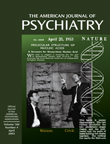Understanding and Treating Cognition in Schizophrenia: A Clinician’s Handbook
Understanding the cognition of patients with schizophrenia could give important insights into the formation of delusional thinking, the fixation of thoughts, and, probably, hallucinatory experiences. In our enthusiasm for an atheoretical descriptive clinical diagnostic schema, the cognitive processes of the patient with schizophrenia have been reduced to the most basic observation: “disorganized speech (e.g., frequent derailment or incoherence)” (DSM-III, DSM-III-R, DSM-IV, and DSM-IV-TR). Consequently, most clinicians and trainees tend to overlook both the complexity and vast literature on cognitive processes in schizophrenia. This concise small book by Philip Harvey and Tonmoy Sharma attempts to rectify this oversight. The 15 chapters cover such topics as learning and memory, working memory, attention, the effects of aging, and executive functions in patients with schizophrenia. These cognitive functions are often more critical than the label of schizophrenia because they determine the disability and potential for rehabilitation of the patient. Also covered are the effects of conventional and atypical antipsychotics, behavioral treatments of cognitive impairments, and other types of psychopharmacological interventions on cognition in patients with schizophrenia.
This book does a real service in calling our attention to the importance of cognition in the patient with schizophrenia and provides valuable information on the subject, but it does have some drawbacks. First, it is difficult to read and could have used a good editor to decrease the complexity of the prose style, e.g., “Patients with schizophrenia also show slower rates of development of automatic information processing with practice” (p. 60) and “One of the important factors to keep in mind when considering rates of learning with training is which types of patients are referred to rehabilitation” (p. 75). Second, there is a tendency to base much of the book on the authors’ own work, which is fine, but in the chapter on the effects of atypical antipsychotics they focus on the unique effects of these drugs on cognition as opposed to the traditional neuroleptics, when the current literature on this subject shows less positive conclusions. Despite these drawbacks, the book should serve to convey to the clinician that “disorganized speech” is a shorthand term for the very complex area of cognition and that the cognition of the patient with schizophrenia is perhaps key to the psychopathology we observe.



